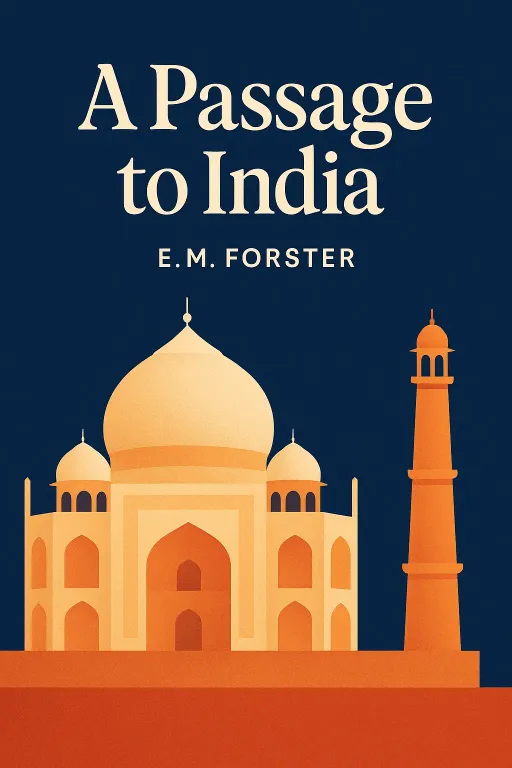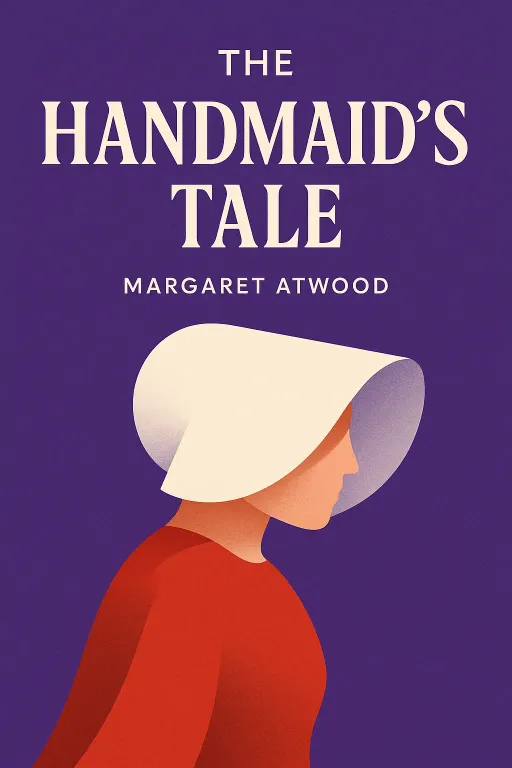
A Passage to India
9 minIntroduction
Narrator: Can two people from vastly different worlds—one a ruler, the other the ruled—truly be friends? Or will the immense weight of history, prejudice, and misunderstanding always stand in their way, crushing any hope of genuine connection? This is the central, haunting question at the heart of E.M. Forster’s masterpiece, A Passage to India. Set against the simmering tensions of the British Raj in the 1920s, the novel explores the complex and often impossible relationships between the English colonizers and the people of India. Through the journey of two Englishwomen who seek the "real India," Forster crafts a profound narrative about the elusive nature of truth, the chasm of cultural misunderstanding, and the tragic limits of human connection in a world divided by power.
The Elusive "Real India" and the Fragility of Goodwill
Key Insight 1
Narrator: In the fictional city of Chandrapore, the British and Indian communities exist in separate, almost hermetically sealed worlds. The English live in the manicured Civil Station, maintaining a rigid social code built on racial superiority and a deep-seated distrust of the locals. Into this divided world arrive two newcomers from England: the elderly, empathetic Mrs. Moore and the younger, intellectually curious Adela Quested. Unlike the jaded Anglo-Indians, they are determined to see the "real India" and form genuine friendships.
Their desire is put to the test at a "Bridge Party" organized by Mr. Turton, the city's Collector. The event is intended to "bridge the gulf" between the communities, but it only serves to highlight the chasm. The Indian guests are herded to one side of the lawn, while the English keep to themselves, their interactions with the Indians marked by condescension and awkwardness. Mrs. Turton, the Collector's wife, embodies this attitude, remarking that the most important Indians aren't present and that one must not get too familiar. Adela and Mrs. Moore’s attempts at sincere conversation are met with polite but distant responses, revealing the superficiality of the entire affair. The party is a social failure, a carefully staged performance of goodwill that convinces no one. It demonstrates a core truth of the novel: in the oppressive atmosphere of colonial rule, even the best intentions are not enough to overcome the deeply entrenched barriers of prejudice and power.
The Marabar Caves and the Echo of Nothingness
Key Insight 2
Narrator: The desire for an authentic Indian experience culminates in a trip to the mysterious Marabar Caves, organized by the enthusiastic Indian doctor, Aziz. The caves are ancient, predating human history and religion. They are described as being profoundly empty, containing nothing but a disorienting, unsettling echo. When a match is struck, its light reveals nothing of note, and its sound produces a simple, hollow "boum." This echo is the novel's central symbol—a force that reduces all words, emotions, and distinctions to the same meaningless noise.
For Mrs. Moore, the experience is spiritually devastating. Inside one of the crowded, dark caves, she is overwhelmed by the press of bodies and the terrifying echo. The sound seems to tell her that "Everything exists, nothing has value." Her Christian faith, her love for her children, and her belief in human connection are all reduced to "boum." She emerges from the cave broken, apathetic, and utterly disillusioned, having confronted a vision of universal meaninglessness. For Adela, the experience is different but equally catastrophic. Alone in another cave, she has a terrifying and ambiguous experience that leads her to believe she has been assaulted by Dr. Aziz. The "muddle" of the caves, which defies rational explanation, becomes the site of a tragedy that will engulf the entire community.
The Trial as a Microcosm of Colonial Division
Key Insight 3
Narrator: Adela's accusation against Dr. Aziz ignites the simmering racial tensions of Chandrapore. The British community instantly closes ranks, abandoning reason for collective outrage. For them, Aziz's guilt is a foregone conclusion, and the trial is not about justice but about punishing an Indian for a perceived attack on an Englishwoman. The English Club becomes a fortress of racial solidarity, where any dissent is treated as betrayal.
This is most clearly seen in the story of Cyril Fielding, the open-minded schoolmaster who is Aziz's friend. When Fielding publicly declares his belief in Aziz's innocence at the club, he is immediately ostracized. The Collector, Mr. Turton, furiously demands that he join the herd and condemn the "crime." When Fielding refuses, he is expelled from the club, physically and socially. The incident reveals the core of the colonial mindset: at a moment of crisis, racial loyalty trumps individual conscience, and the "lantern of reason" is extinguished in favor of collective emotion. The trial becomes a battleground not for one man's guilt or innocence, but for the power and prestige of the British Empire itself.
The Unraveling of Truth and the Burden of Conscience
Key Insight 4
Narrator: As the trial begins, Adela Quested is in a state of confusion and psychological distress. She is haunted by the echo from the cave and a growing uncertainty about what truly happened. Pressured by the entire British community to secure a conviction, she finds herself struggling with her own memory. The courtroom is a theater of colonial power, with the British seated on a raised platform, literally looking down on the proceedings.
A pivotal moment occurs when the defense lawyer, in a desperate move, invokes the name of Mrs. Moore, who has since left India. The crowd of Indians in the courtroom, who have come to see her as a saintly figure, begin to chant her name: "Esmiss Esmoor, Esmiss Esmoor." The sound, a distorted echo of her name, seems to work on Adela's conscience. When she is finally asked to describe the assault, she is forced to confront the truth of her own experience. In a moment of profound courage, she retracts her accusation, stating that Dr. Aziz never followed her into the cave. Her confession throws the court into chaos, enraging the British and leading to jubilant celebrations among the Indians. Adela, by choosing honesty over loyalty to her race, shatters the colonial narrative but is left utterly alone.
The Impossibility of Friendship Under Empire
Key Insight 5
Narrator: The novel's final section takes place two years later. Aziz, embittered by the trial, has left British India to work in a remote Hindu state. Fielding, after a trip to England, has married Stella, Mrs. Moore's daughter—a fact that Aziz misinterprets as a betrayal. When they meet for one last ride together, the deep affection between the two men is still evident, but it is overshadowed by the unbridgeable political divide.
Aziz has become a staunch Indian nationalist, declaring that he wants nothing more to do with the English. He tells Fielding that they can only be friends when the British have been driven from India. As they ride, their horses swerve apart, symbolizing their forced separation. Fielding asks, "Why can't we be friends now? It's what I want. It's what you want." But the landscape itself—the rocks, the sky, the earth—seems to provide the answer. In the book's famous final lines, they shout in their hundred voices, "No, not yet," and the sky adds, "No, not there." Forster's conclusion is both tragic and clear: in a land defined by colonial oppression, personal goodwill is not enough. The very structure of empire makes true, equal friendship between ruler and ruled an impossibility.
Conclusion
Narrator: The single most important takeaway from A Passage to India is that systemic power imbalances poison the well of human relationships. Forster shows that no amount of individual kindness, empathy, or rational thought can truly "bridge the gulf" when that gulf is maintained by the political reality of an empire. The tragedy is not just a lack of understanding, but the fact that the colonial context makes genuine understanding impossible.
The novel leaves us with a challenging question that resonates far beyond its historical setting: Can true friendship ever exist between the powerful and the powerless? Or will the very ground on which they stand, shaped by history and inequality, always force them apart, echoing the final, haunting verdict of the Indian landscape: "No, not yet."









